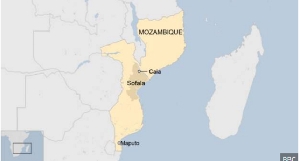Press Releases of Thursday, 30 July 2020
Source: Huawei Ghana
Huawei's Catherine Chen: Shared responsibility for a shared future
Huawei Corporate Senior Vice President and Director of the Board Catherine Chen delivered a keynote speech at the online Better World Summit 2020 today.
According to Chen, telecom regulators across many nations and industries must work together to address the shared challenges that have emerged as a result of the COVID-19 pandemic and create a more inclusive future for all.
A better future for all requires joint effort
Over the past 30 years, information technologies have advanced rapidly, making people's lives and work much easier. The COVID-19 pandemic has revealed though that digital infrastructure has not kept pace with technological developments. According to the ITU, over half of the world's population still does not have Internet access nor access to other digital technologies.
As economies across countries slow, governments grow increasingly concerned with economic recovery strategies. "We envision a more connected, intelligent, and innovative future," said Chen. "Above all else, we must ensure this is an inclusive, sustainable, and better future by all, for all."
Top-down design; bottom-up creativity and vitality needed for economic recovery
As more countries and regions successfully implement infection control measures to slow the spread of COVID-19, economic activity in certain countries has begun to return to normal.
Multiple governments have launched a variety of stimulus plans, and ICT invariably has held a key place in these plans. In China, the New Infrastructure plan has set aside over 140 billion US dollars to be invested in 5G alone over the next five years.
This is expected to grow China's digital economy by more than 2 trillion US dollars and boost domestic economic recovery. The EU has also announced a 1.1-trillion-euro package to enhance economic recovery.
"To revive the economy, we need top-down designs, as well as bottom-up creativity and vitality," noted Chen. "Supporting government policies coupled with active digital transformation across the industry will bring the benefits of digital technology to all industries, boost their efficiency, and restore growth."
Seeds for the Future sows hope by leveraging ICT to enable a sustainable future
Referencing the recent World Bank report on the growing gap between the fast-growing global digital economy and a lack of digital skills, Chen said, "Huawei is continuing with its flagship Seeds for the Future program.
This program was launched in 2008, and is designed to develop local ICT talent. So far, this program has benefited more than 30,000 students from over 400 universities in 108 countries and regions.
Due to the pandemic, we are moving the program online and opening it up to more outstanding students than ever before. As more industries adopt digital technologies, they will drive the United Nations 2030 Strategic Development Goals, especially those related to climate change."
Other speakers also shared their views on how to build a better world in the future at the event.
Senior officers from international organizations, including the ITU, GSMA, and ECTA, spoke on building globally unified ICT standards, promoting the digital economy, accelerating digital inclusiveness, and embracing these new economic normals.
National regulators and policy makers at the event focused more on best practices. Regulators from South Africa, Thailand, China, and Germany as well as the senior management of multiple industry associations described current efforts and policy initiatives they are taking to drive investment in digital infrastructure and digital transformation across multiple industries.
Several senior analysts at the summit also explained at length how spillover from the digital economy will help revive real economies.










